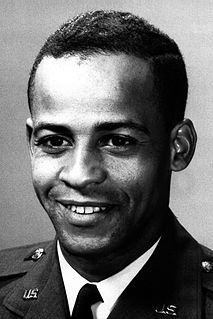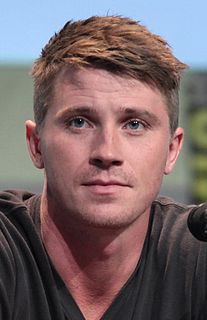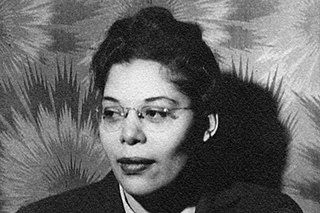A Quote by Ed Dwight
I did this whole series on the buffalo soldiers-on black soldiers-I did another series on black cowboys, and I presented myself to the gallery system, and all these people with these massive collections didn't know there were black cowboys or black soldiers. I ended up hitting a niche I didn't know was there.
Related Quotes
I would say I'm black because my parents said I'm black. I'm black because my mother's black. I'm black because I grew up in a family of all black people. I knew I was black because I grew up in an all-white neighborhood. And my parents, as part of their protective mechanisms that they were going to give to us, made it very clear what we were.
Yeah, I know a lot of soldiers. I know soldiers who don't like to hear thank you for your service. And I know soldiers that do like to be told thank you for your service. The ones who don't like to be told are the ones who've been through serious sh*t. They don't care about feedback. They did their job. They did what they have to do. Sometimes the people that thank them are exactly the ones they don't want to be thanked by.
I used to come out here every Fourth of July as a child to picnic and to swim on the island, to tour the fort and wander through it. And all of that time, I never knew anything about the presence of black soldiers on the island. And so, for me, this was a way of trying to tell another history, a lost or a forgotten or a little-known history about these black soldiers who played an important part in American history.” Trethewey said.
Coincidentally, she was born “exactly 100 years to the day that Mississippi celebrated the first Confederate Memorial Day, April 26, 1866.
You have to know the forces that are against you and that are trying to break you down. We talk about the problems facing the black community: the decimation of the black family; the mass incarceration of the black man; we're talking about the brutality against black people from the police. The educational system.
The Black Watch is one of the most illustrious regiments. They've been at the vanguard of British military operations for 400 years. Something they're very proud of is what they call 'The Golden Thread,' where you can trace a line back from them to the first Black Watch soldiers who were from the Highlands, spoke Gaelic, and wore the kilt.
Black was bestlooking. ... Ebony was the best wood, the hardest wood; it was black. Virginia ham was the best ham. It was black on the outside. Tuxedos and tail coats were black and they were a man's finest, most expensive clothes. You had to use pepper to make most meats and vegetables fit to eat. The most flavorsome pepper was black. The best caviar was black. The rarest jewels were black: black opals, black pearls.
Obviously, I'm not not black. But this is one thing I do know after years and years of working with a lot of black players and black commentators on many networks: That if you go to the place of you're telling a black man, or a black woman, that 'You should know your place and stay in it,' when you get to there, them's fighting words.




































